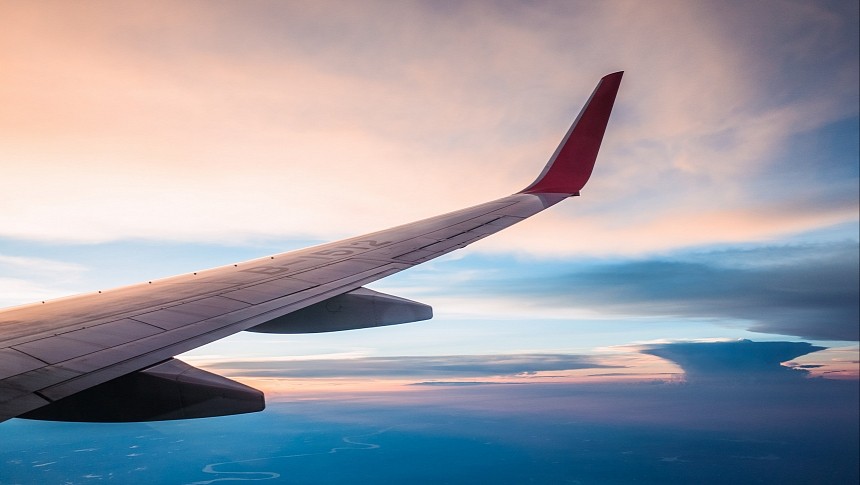Here's the bad news: SAF (Sustainable Aviation Fuel) production capacity is still extremely lower than what is needed globally for real changes. The good news is that there are more ways than one to obtain this alternative fuel, and one of them could prove to be much more efficient than existing ones.
IATA (the International Air Transport Association) members agree that SAF could help reduce up to 65% of GHG (greenhouse gas) emissions, the highest percentage of all potential routes. Compared to that, electric and hydrogen-powered aircraft would only account for 13%, and modifications in operational efficiency for even less (only 3%).
This explains the global effort to ramp up SAF production. Right now, supply is still far beyond operational requirements. A Germany-based startup wants to improve things by introducing an innovative production method that could increase capacity considerably and at reasonable costs.
The company is called CAPHENIA, and its technology is known as PBtL (Power-and-Biogas-to-Liquid). CAPHENIA developed both the technology and an advanced reactor that's supposed to be simpler and much faster than existing designs.
Through this process, CO2 and biogas are converted into renewable synthetic fuels. CAPHENIA also claims to use less electricity for its process than current reactors and use only renewable energy sources to generate it.
The result, synthesis gas, is an intermediate product that can be then used for producing alternative fuels. This is an indirect way to make SAF (typically obtained from sources like used cooking oil, forest biomass, animal fat, and waste) but one that claims to be highly efficient.
The SAF resulting from PBtL claims to be able to reduce CO2 emissions by 92% compared to fossil fuels. According to the German startup, this is the only fuel production route that comes close to these levels. Plus, its patented process claims to be the only one of its kind worldwide.
CAPHENIA is set to kick off commercial production next year and reach a ten-million-liter capacity by 2027. This will grow to 100 million liters by the end of this decade. Over the next decade, production capacity would grow to more than one billion liters.
The plan was convincing enough to determine a reputable player in the air travel sector to invest in CAPHENIA. Amadeus is not even an airline or aircraft manufacturer, yet it's committed to supporting the use of SAF. This is also an industry first since no other travel technology company has invested in SAF-related processes before.
According to IATA estimates, global aviation will need nearly 450 billion liters of SAF annually to reach 65% GHG emissions reduction. The demand is huge, and innovative production technologies like CAPHENIA's PBtL can satisfy it in a way that's both sustainable and cost-effective.
IATA (the International Air Transport Association) members agree that SAF could help reduce up to 65% of GHG (greenhouse gas) emissions, the highest percentage of all potential routes. Compared to that, electric and hydrogen-powered aircraft would only account for 13%, and modifications in operational efficiency for even less (only 3%).
This explains the global effort to ramp up SAF production. Right now, supply is still far beyond operational requirements. A Germany-based startup wants to improve things by introducing an innovative production method that could increase capacity considerably and at reasonable costs.
The company is called CAPHENIA, and its technology is known as PBtL (Power-and-Biogas-to-Liquid). CAPHENIA developed both the technology and an advanced reactor that's supposed to be simpler and much faster than existing designs.
Through this process, CO2 and biogas are converted into renewable synthetic fuels. CAPHENIA also claims to use less electricity for its process than current reactors and use only renewable energy sources to generate it.
The result, synthesis gas, is an intermediate product that can be then used for producing alternative fuels. This is an indirect way to make SAF (typically obtained from sources like used cooking oil, forest biomass, animal fat, and waste) but one that claims to be highly efficient.
The SAF resulting from PBtL claims to be able to reduce CO2 emissions by 92% compared to fossil fuels. According to the German startup, this is the only fuel production route that comes close to these levels. Plus, its patented process claims to be the only one of its kind worldwide.
CAPHENIA is set to kick off commercial production next year and reach a ten-million-liter capacity by 2027. This will grow to 100 million liters by the end of this decade. Over the next decade, production capacity would grow to more than one billion liters.
The plan was convincing enough to determine a reputable player in the air travel sector to invest in CAPHENIA. Amadeus is not even an airline or aircraft manufacturer, yet it's committed to supporting the use of SAF. This is also an industry first since no other travel technology company has invested in SAF-related processes before.
According to IATA estimates, global aviation will need nearly 450 billion liters of SAF annually to reach 65% GHG emissions reduction. The demand is huge, and innovative production technologies like CAPHENIA's PBtL can satisfy it in a way that's both sustainable and cost-effective.







